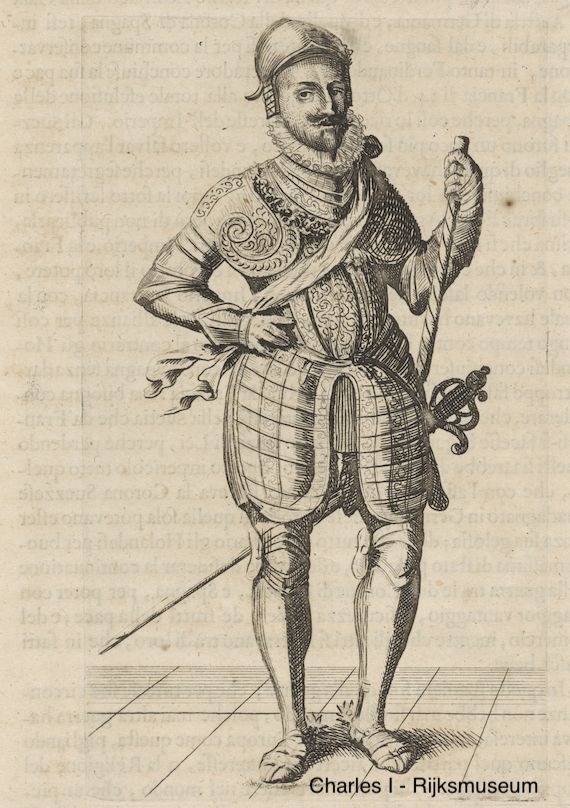From author Mark Turnbull at Allegiance of Blood:
On 22 August 1642, King Charles raised his royal standard in Nottingham. It is an event that has become infamous over the centuries, with many using this as an appropriate anchor point. The formal start of the conflict - King Charles declaring war on his people. An online poll I recently ran received 219 votes, with 64% opting for this date. Both sides, however, were raising troops, securing strongholds, arms, or ammunition, and battling it out in skirmishes well before 22 August 1642. Because of this ceremonial flag-waving, credit for officially kicking off hostilities is subsequently laid squarely at Charles’s door.
The standard had been hoisted to the heavens not once, but twice. The first time it had been inserted into a badly dug hole only to be blown down, which was considered a bad omen. A herald made to read out the royal proclamation, which was as good as a manifesto. The king declared his intention to suppress the ‘pretended’ rebellion of the Earl of Essex, who had raised troops against him, and called for ‘the aid and assistance of all his loving subjects’.
In the days that followed, it seemed as if royal advisors were prepared to undermine the ceremony altogether, no matter Sir Edmund’s vow. Much to the king’s frustration, a majority persuaded him, even at this decisive point, to send representatives to London in a last-ditch attempt to secure peace. It was a move that discouraged royalist supporters, who feared declaring their colours lest the king should sell out to his enemies – as he had done in the past. With scarcely one thousand troops by his side, the monarch had hoped this ancient ceremony would bring patriotic recruits flooding in. In the aftermath only a meagre 30 or so materialised. As Parliament’s army of 15,000 drew closer, Charles was forced to fly west towards the Welsh border.
However, the narrative surrounding the event at Nottingham can be turned on its head. Until my recent research for ‘Charles I’s Private Life’ I hadn’t been aware of a missing piece of the jigsaw.
On 4 August 1642, Parliament made a very significant declaration. After much debate in the Houses of Commons and Lords, MPs and peers announced in a long statement that they were engaged in a ‘necessity’ to take up arms. Every key moment in the slide to war was listed, formally justifying hostilities against a malignant party that surrounded the monarch. It ranged from failed attempts to impose a new prayer book in Scotland, the king’s move to arrest 6 Members of Parliament in January 1642, and the fiasco before Hull. Though the document professed loyalty to the king’s person, Parliament called to their cause anyone with a sense of piety and honour and insisted they would live or die in it. The kingdom, they asserted was in imminent danger, and this was the reason for raising an army under the command of the Earl of Essex.
The declaration was a full-blown rallying call. The Venetian Ambassador was in no doubt when he reported home that the English Parliament had declared war on the king. If Parliament had a standard of its own, it would have been flapping above their chambers over two weeks earlier than the kings in Nottingham. MPs and peers had blinked first. (Read more.)


















No comments:
Post a Comment